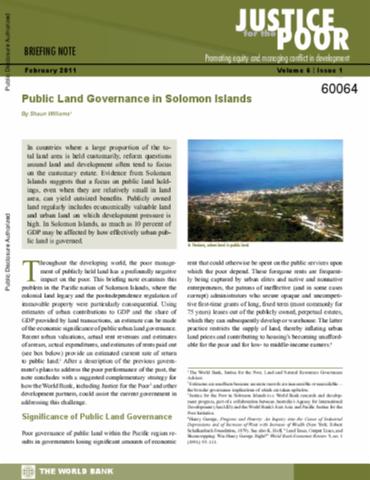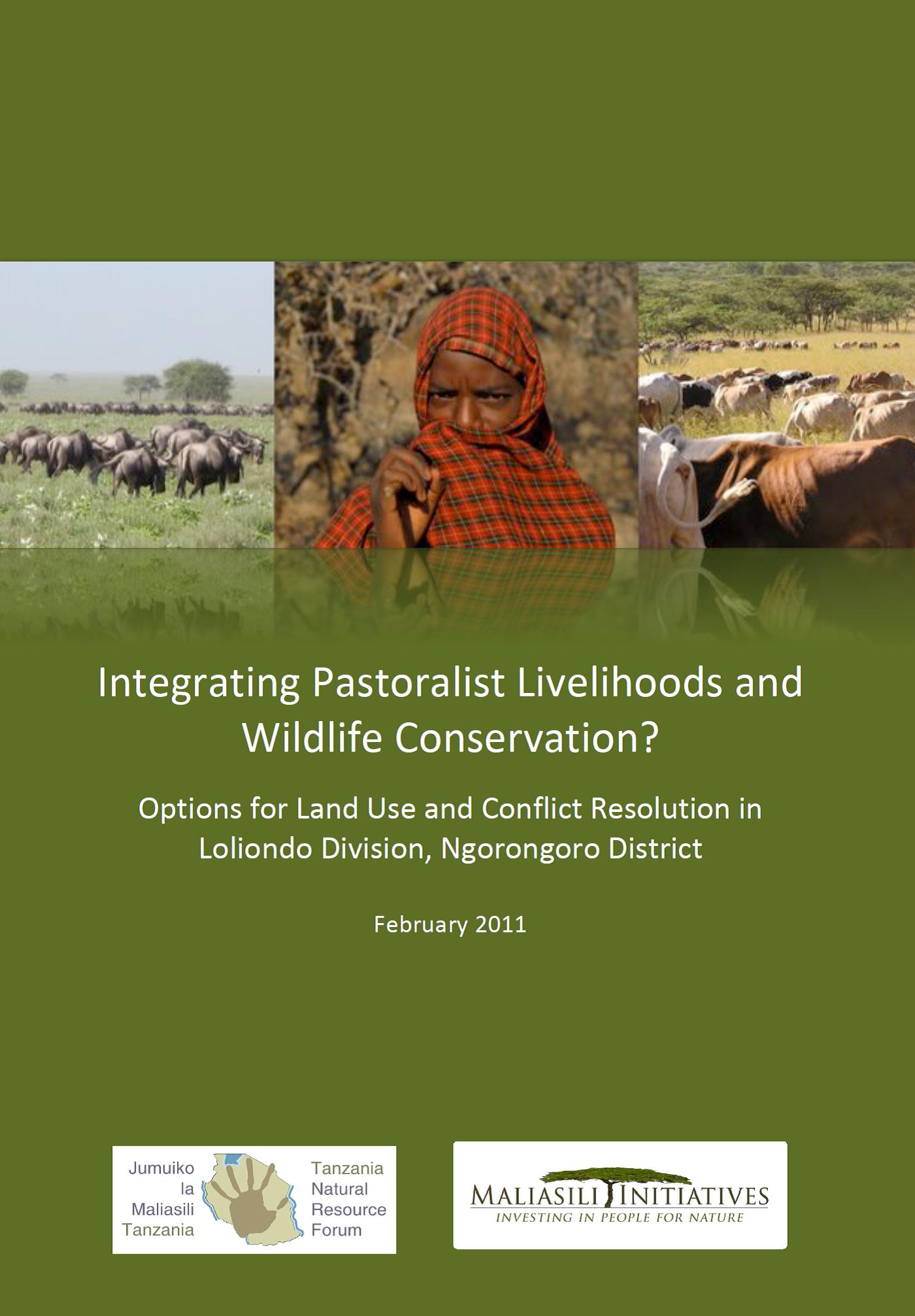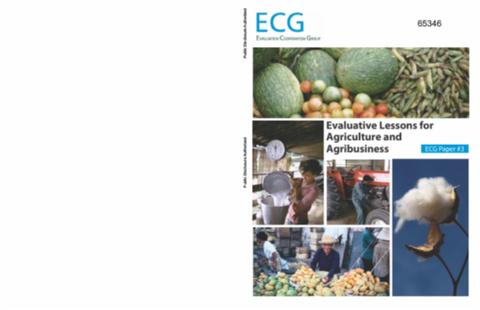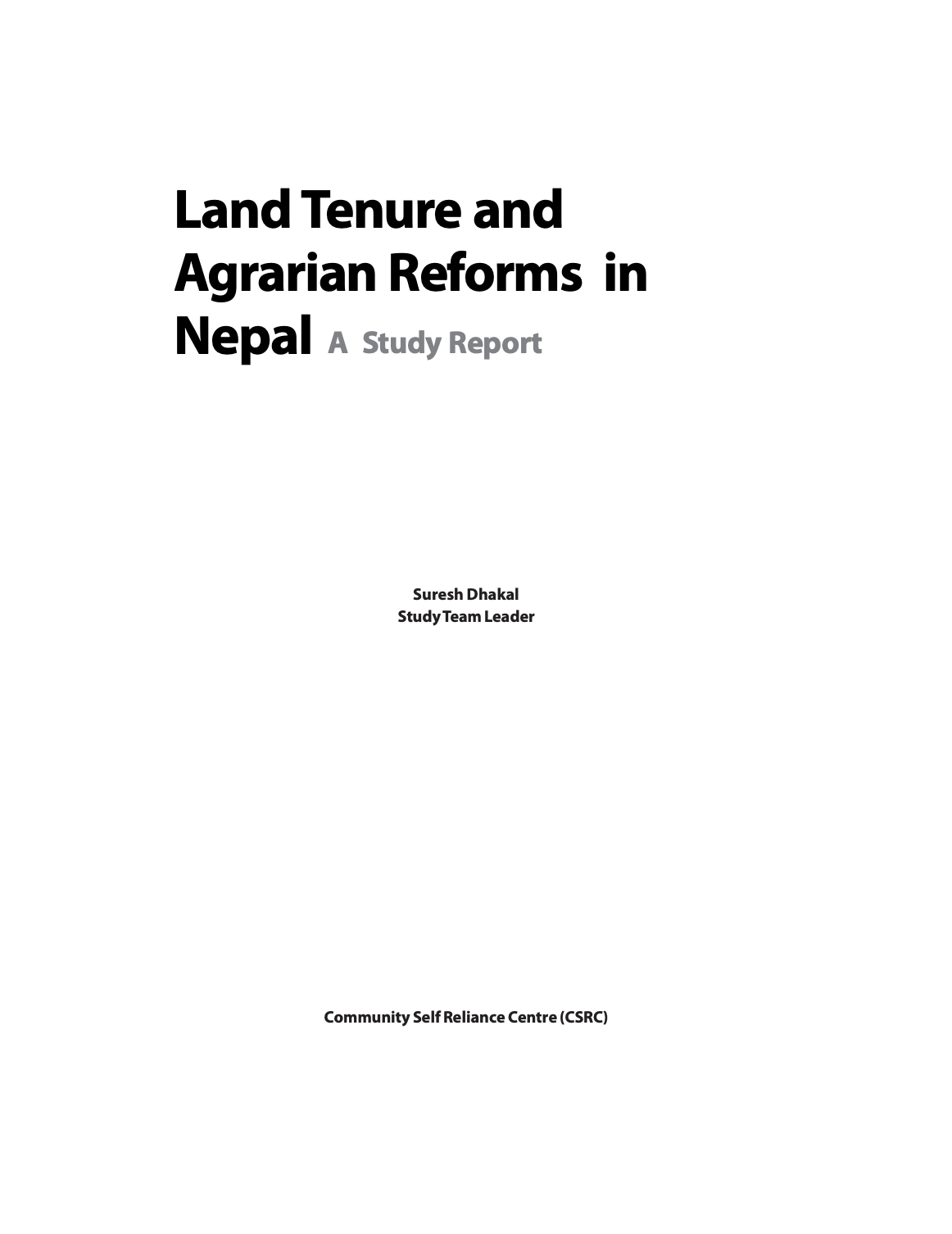Public Land Governance in Solomon Islands
In countries where a large proportion of the total land area is held customarily, reform questions around land and development often tend to focus on the customary estate. Evidence from Solomon Islands suggests that a focus on public land holdings, even when they are relatively small in land area, can yield outsized benefits. Publicly owned land regularly includes economically valuable land and urban land on which development pressure is high. In Solomon Islands, as much as 10 percent of Gross Domestic Product (GDP) may be affected by how effectively urban public land is governed.










